Research and Development Tax Credit
Receive your R&D tax credit thanks to Propulsio 360.
Whether you’re new to the R&D tax credit program or a repeat applicant, our goal is to enhance your experience and maximize your benefits with our financial experts. Our mission is to provide funding that suits the needs of Canada’s innovative companies: simple, predictable, non-dilutive capital, delivered on an on-going basis.
The Scientific Research and Experimental Development (SR&ED) Program uses tax incentives to encourage Canadian businesses of all sizes and sectors to conduct research and development (R&D) in Canada. These tax incentives come in three forms: an income tax deduction, an investment tax credit (ITC), and, in certain circumstances, a refund. The SR&ED tax credit and provincial tax credits for R&D are a distinct benefit in addition to corporate tax provisions allowing for the full deduction of current R&D expenditures from business income.
- High success rate: We proudly have a 99.9% success rate in securing R&D tax credit refunds for our clients.
- Competitive pricing: Unlike other firms in the industry, Propulsio 360 does not take a percentage of your tax credit.
- Experts at your service: Our financial experts have helped over 150+ companies secure an R&D tax credit.
HIGH SUCCESS RATE
We proudly have a 99.9% success rate in securing R&D tax credit refunds for our clients.
COMPETITIVE PRICING
Unlike other firms in the industry, Propulsio 360 does not take a percentage of your tax credit.
EXPERTS AT YOUR SERVICE
Our financial experts have helped over 150+ companies secure an R&D tax credit.
Our R&D experts will discuss with you your company’s R&D projects and refund eligibility. We would be pleased to provide you with a free initial R&D Consultation of these project(s) and give you an SR&ED refund estimate based on your expenditures. Book a consultation and let’s claim success!
The SR&ED tax incentive program provides tax incentives for the direct in-house costs of performing eligible R&D work in Canada. Eligible work includes experimental development, applied research, basic research, and certain types of work in support. This supporting work includes engineering, design, operations research, mathematical analysis, computer programming, data collection, testing, and psychological research.
18 months after the end of each financial year.
For the most part, the work must be done in Canada. The following work qualifies.
- Basic research: There is no practical application in mind while conducting the research. The main goal is scientific advancement.
- Applied research: As basic research, but there is a practical application in view.
- Experimental development: This is the most common type of SR&ED work. The goal is technological advancement. It allows the development of new products or the improvement of existing ones.
- Support work: This work is not considered SR&ED. It is however eligible if it’s done directly in support of one the three previous categories. Support work includes work with respect to engineering, design, operations research, mathematical analysis, computer programming, data collection, testing or psychological research.
- Market research or sales promotion
- Research in social sciences and the humanities
- Commercial production
- Style changes
- Routine data collection
- Prospecting, exploring and/or drilling for minerals, petroleum or natural gases
- Salary and wages
- SR&ED subcontracts (limited to 10% of the claim with a non-Canadian company)
- Materials
- Overhead
- Testing
For a Canadian-controlled private corporation, the refundable Investment Tax Credit (ITC) rate from the Canadian government is 35% for expenditures of $3M or less.
Since a partnership is not considered a taxpayer, members cannot earn an ITC. The claim must be done as a partnership by following the SR&ED Claims for Partnership Policy.
A CCPC should have a taxable income of less than $10M.
In Quebec, the expenses are reduced by a flat threshold of $50,000. The tax credit rate is 30%.
Your overall tax credit rate will be 35% on the first $50,000 and 65% for all expenses above $50,000.
